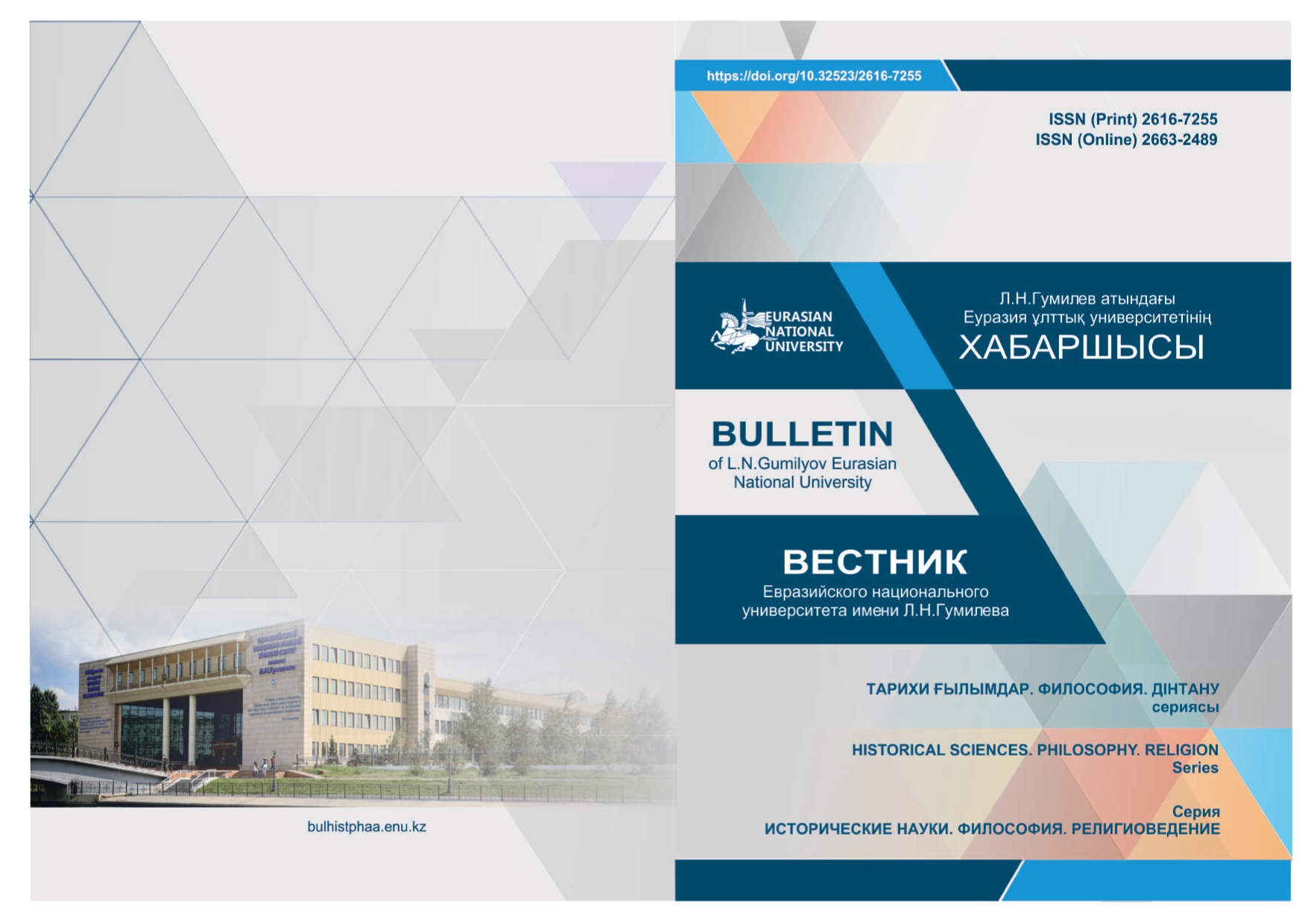The main results of the All-Union census of the population of the South of Kazakhstan (1926-1939) in archival materials
Views: 281 / PDF downloads: 324
DOI:
https://doi.org/10.32523/2616-7255-2023-142-1-8-25Keywords:
South of Kazakhstan; population census; Kazakh population; multi-ethnicity; social composition.Abstract
In the article, the authors made an attempt to briefly analyze the main aspects of the socio-demographic development of the South of Kazakhstan in period 1926-1939. The cardinal political and socio-economic processes that took place in Kazakhstan (resettlement of wealthy peasants and Kazakh sharua, forced collectivization, political repressions, the famine of 1930-1931, etc.) had a direct impact on the socio-demographic development of the republic. In the South, despite all the tragic events of these years, there was a slight increase in population. The proportion and number of urban residents grew, mainly due to the capital of Kazakhstan - Almaty and regional centers. But on this indicator, the South lagged behind the population of other regions of Kazakhstan. The exception was the Almaty region. The southern region of Kazakhstan traditionally remained an area with a predominance of the Kazakhs. A significant number of representatives of the Turkic-Muslim ethnic groups, mainly Kazakh-speaking, also lived here. The growth of polyethnicity continued due to the growth in the number of Russians and Ukrainians. It led to the reduction of the Kazakhs in the urban population and industrial sectors of the economy. Southern Kazakhstan remained a predominantly agrarian region; social structure of the population was formed with a high proportion of collective farmers and a small representation of workers and employees.
Downloads

Downloads
Published
How to Cite
Issue
Section
License
Copyright (c) 2023 Тимур А. Апендиев , Жамиля М-К. Асылбекова

This work is licensed under a Creative Commons Attribution-NonCommercial 4.0 International License.







